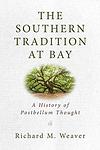Richard Hofstadter
Richard Hofstadter was an American historian and public intellectual of the mid-20th century. Hofstadter was a leading figure in the field of American intellectual history and his works explored the dynamics of American political culture, including the social movements and the development of political ideologies within the United States. He is well-known for his works such as 'The American Political Tradition' and 'Anti-Intellectualism in American Life,' the latter of which won the Pulitzer Prize for General Non-Fiction in 1964. Hofstadter's analysis of the political and social evolution of the United States continues to influence historians and scholars.
Books
This list of books are ONLY the books that have been ranked on the lists that are aggregated on this site. This is not a comprehensive list of all books by this author.
-
1. The Age of Reform
This historical analysis explores the political and social changes in the United States from the 1890s to the 1940s, focusing on the Populist and Progressive movements. The author scrutinizes the motivations and accomplishments of reformers during this time, arguing that their efforts were driven more by fears of modernity and changes in society than by altruistic desires for social justice. The book also delves into the impact of these movements on American politics and the ways they shaped the nation's future.
-
2. The American Political Tradition
"The American Political Tradition" is a critical examination of the United States' political history from the founding fathers to the New Deal era. The book presents nuanced portraits of key figures, challenging the conventional wisdom about their roles and beliefs, and explores the tensions between democracy and capitalism, the individual and the community, and idealism and power. It provides a thoughtful critique of American political culture and its contradictions, arguing that the country's ideals often mask underlying economic and power interests.
-
3. Anti-intellectualism in American Life
This book is a critical examination of the historical trend of anti-intellectualism in American society from the 19th century to the 1960s. The author explores how this disdain for intellectual pursuits and glorification of practical skills has influenced various aspects of American life including politics, business, education, and religion. The book also analyzes the roots of this phenomenon, linking it to populist movements, religious fundamentalism, and the American suspicion of elites and expertise.


